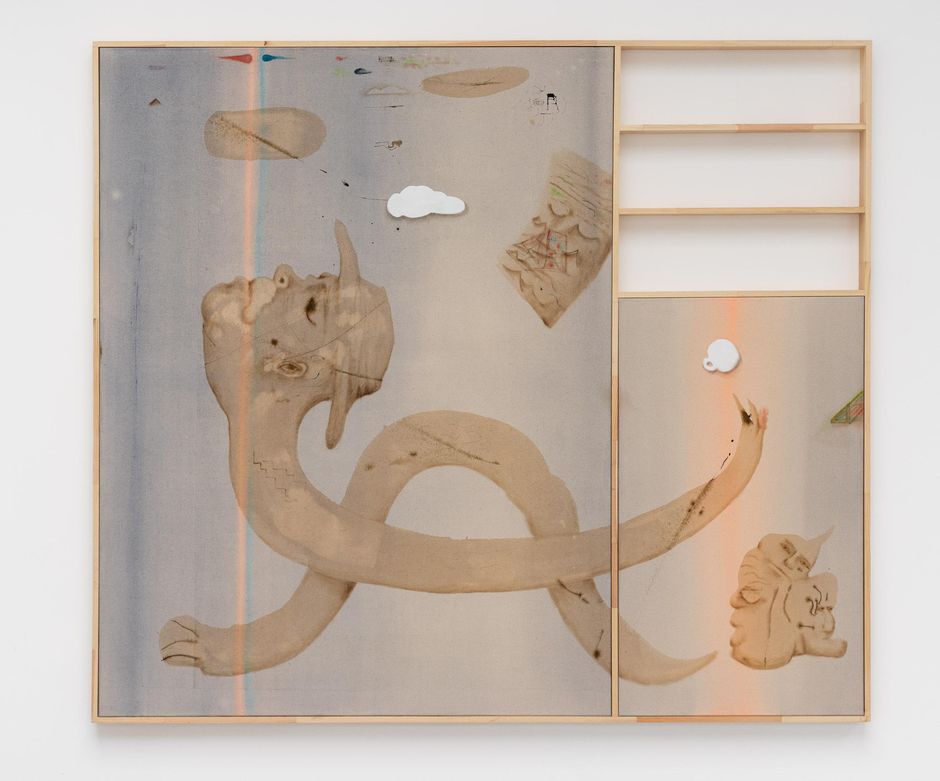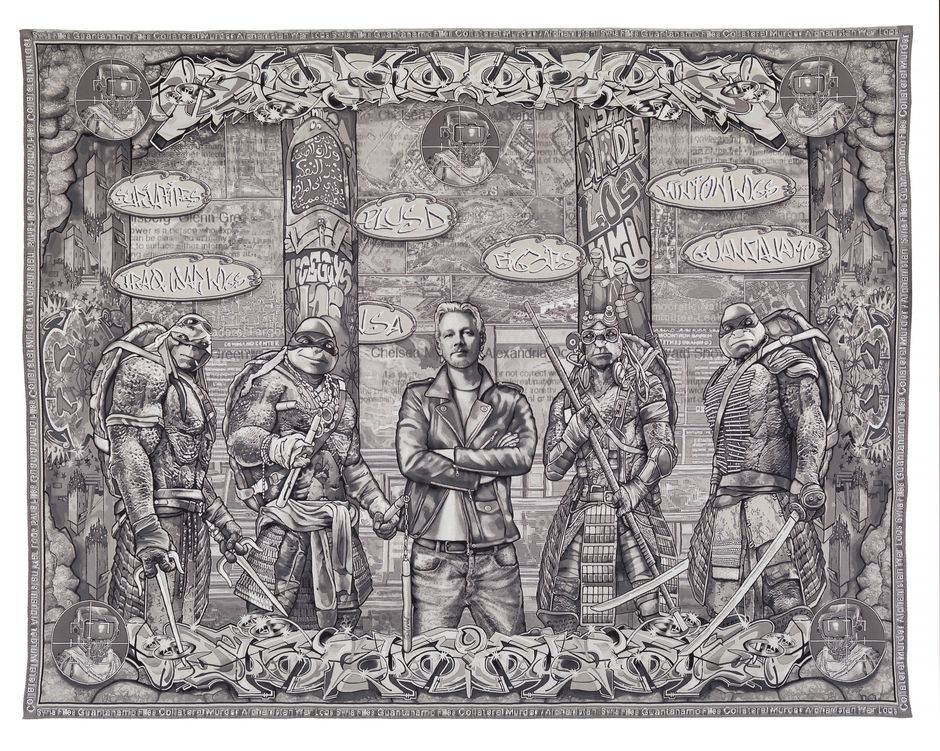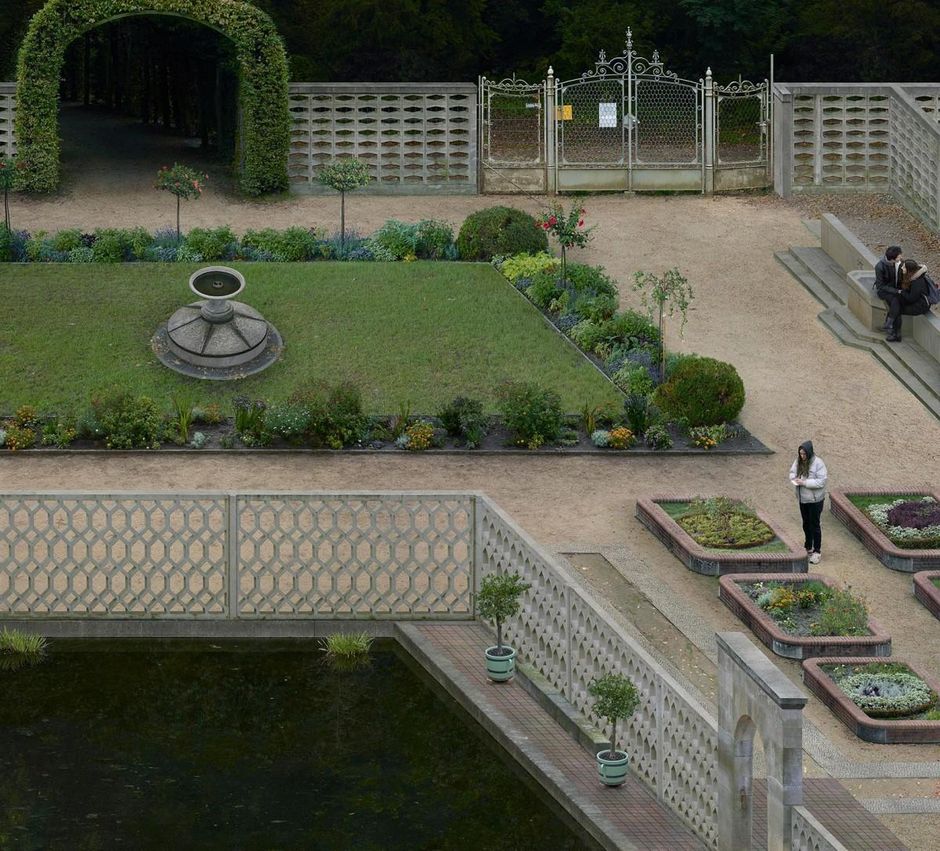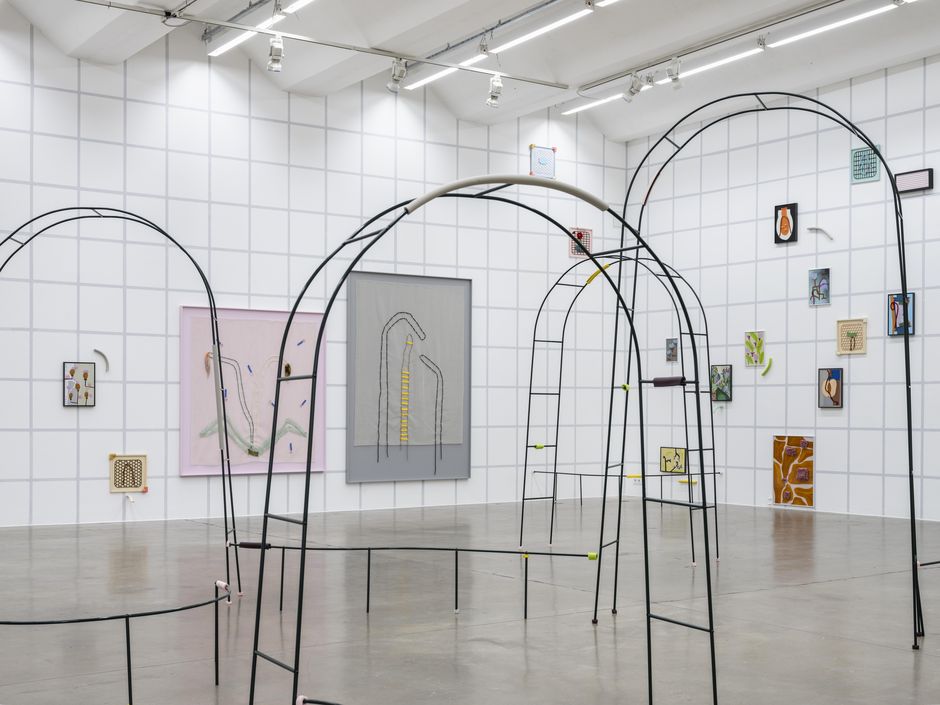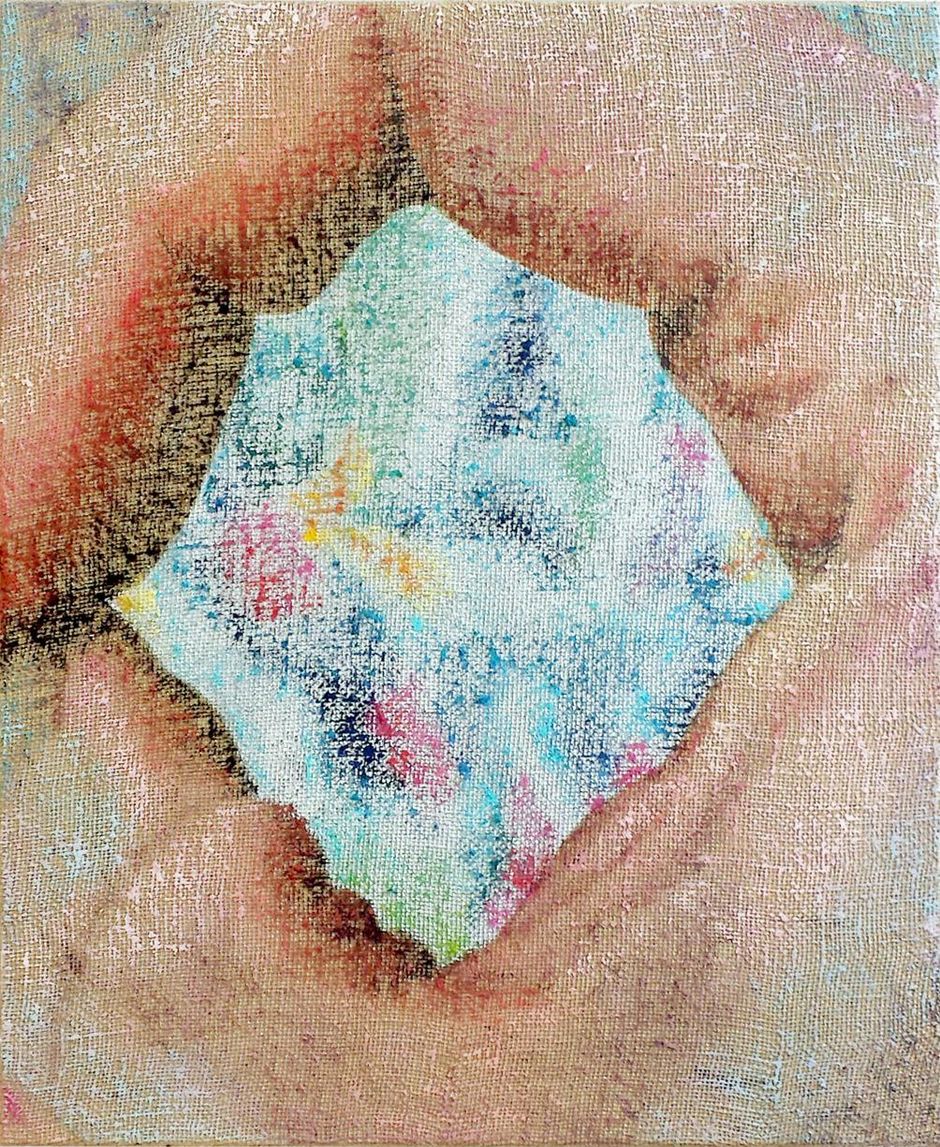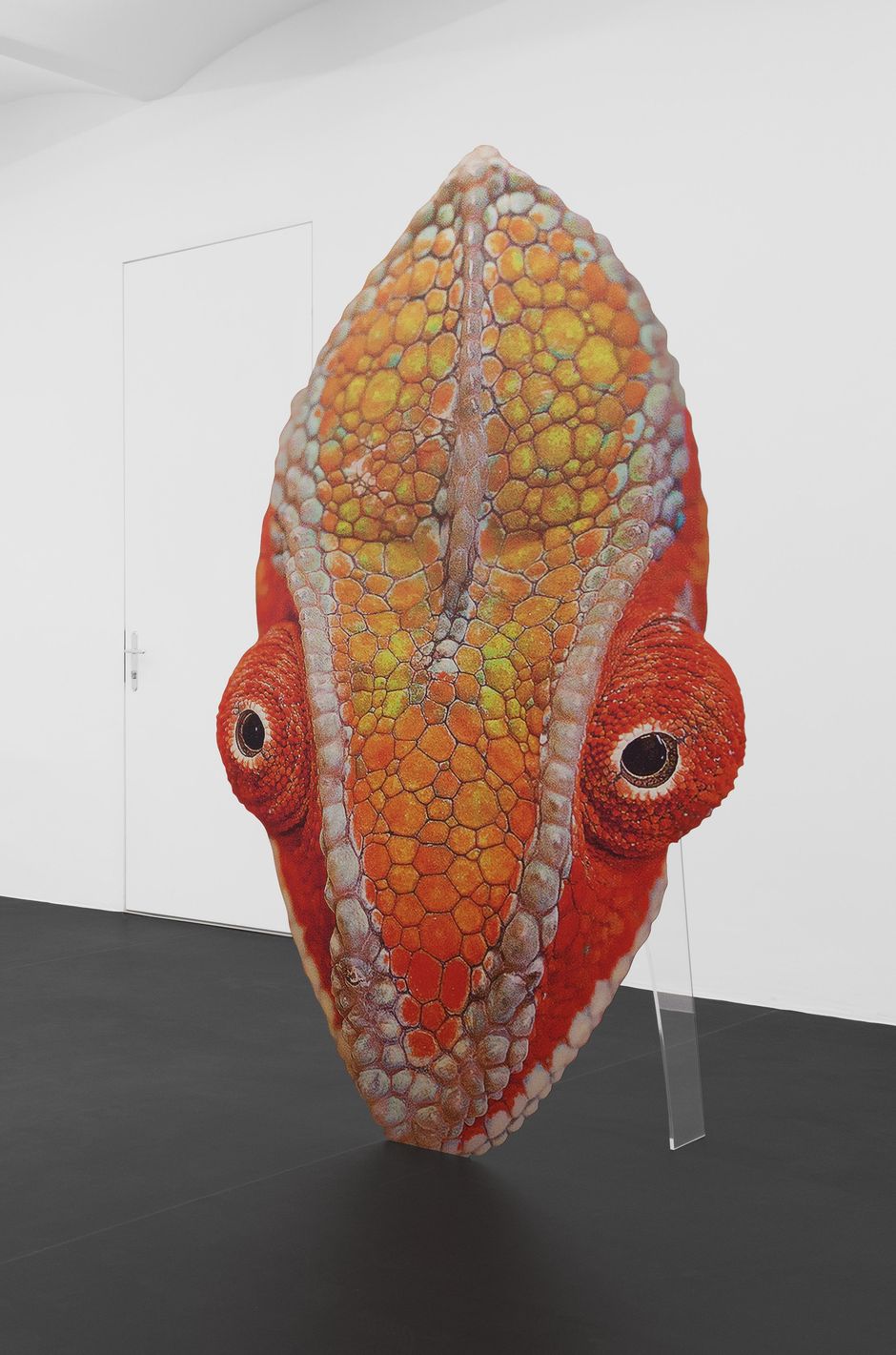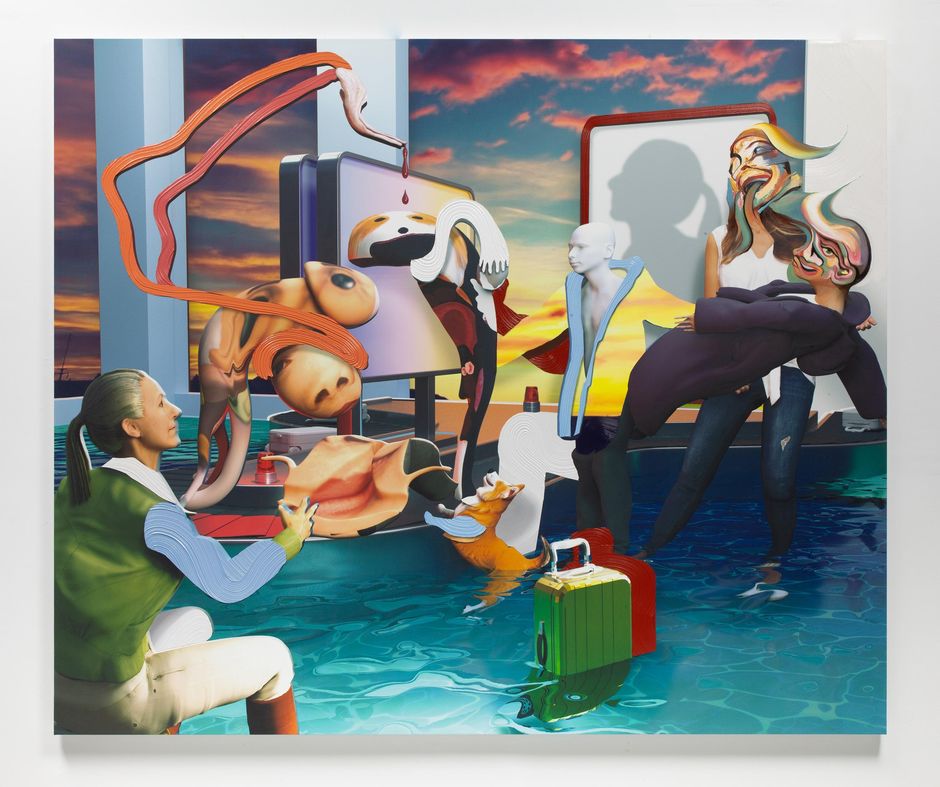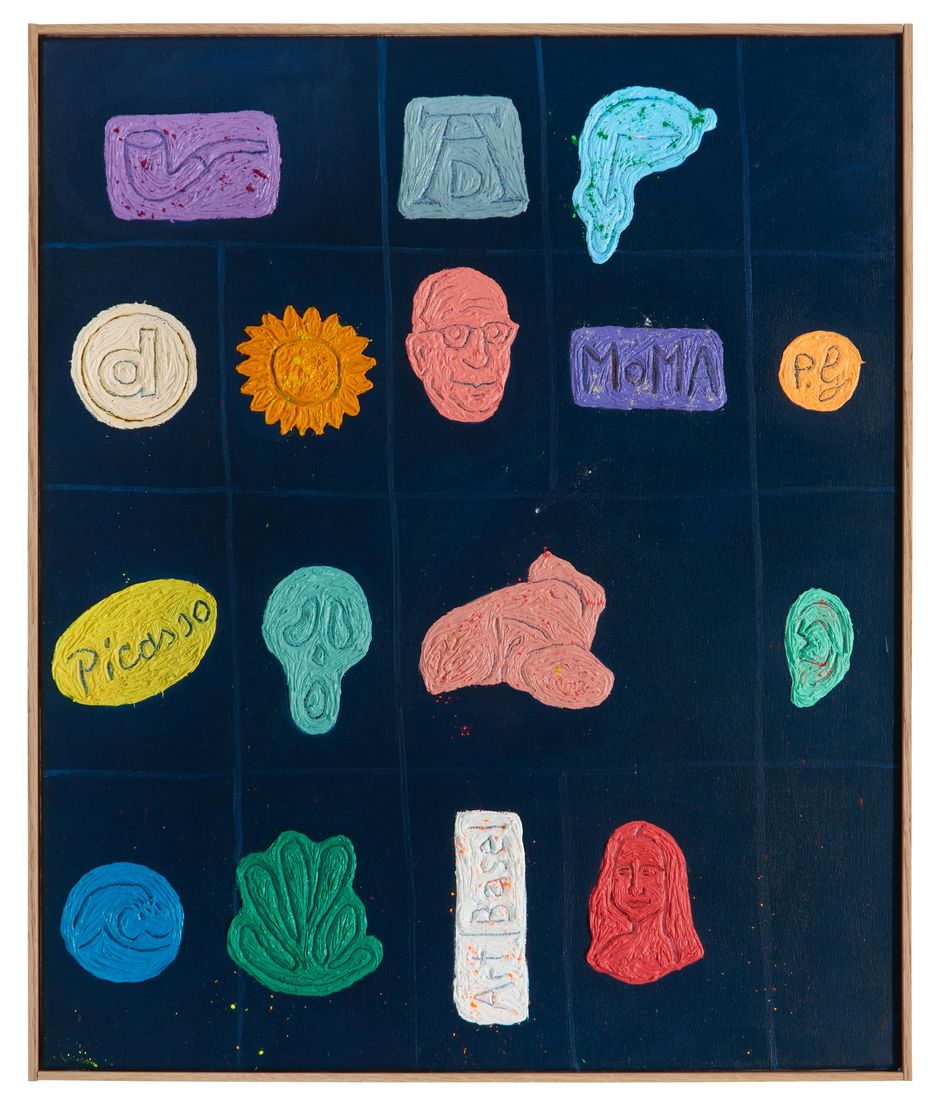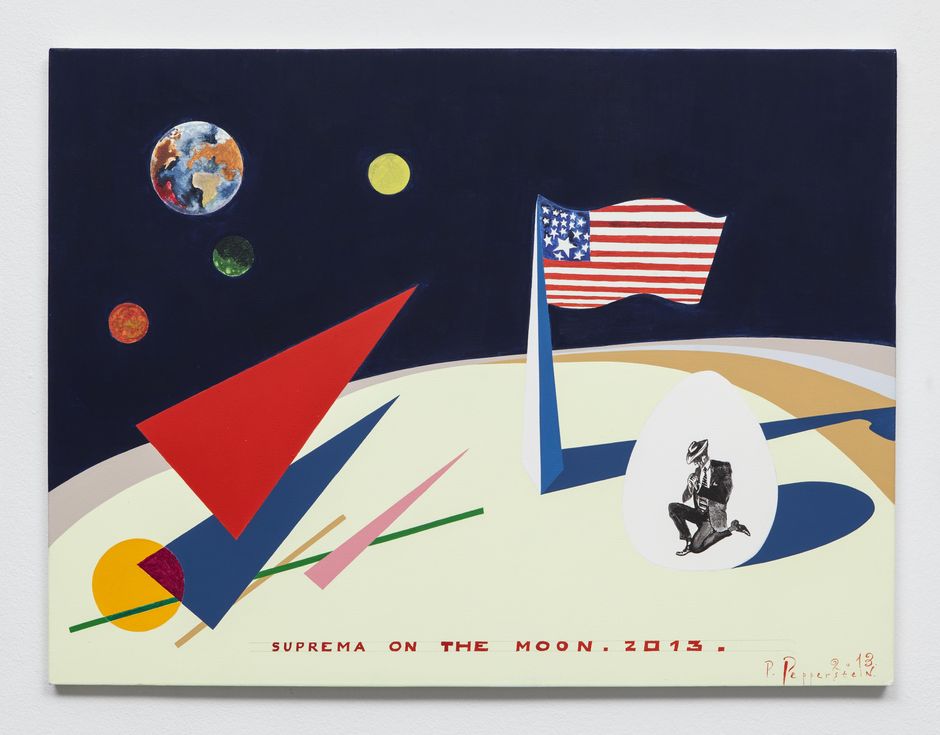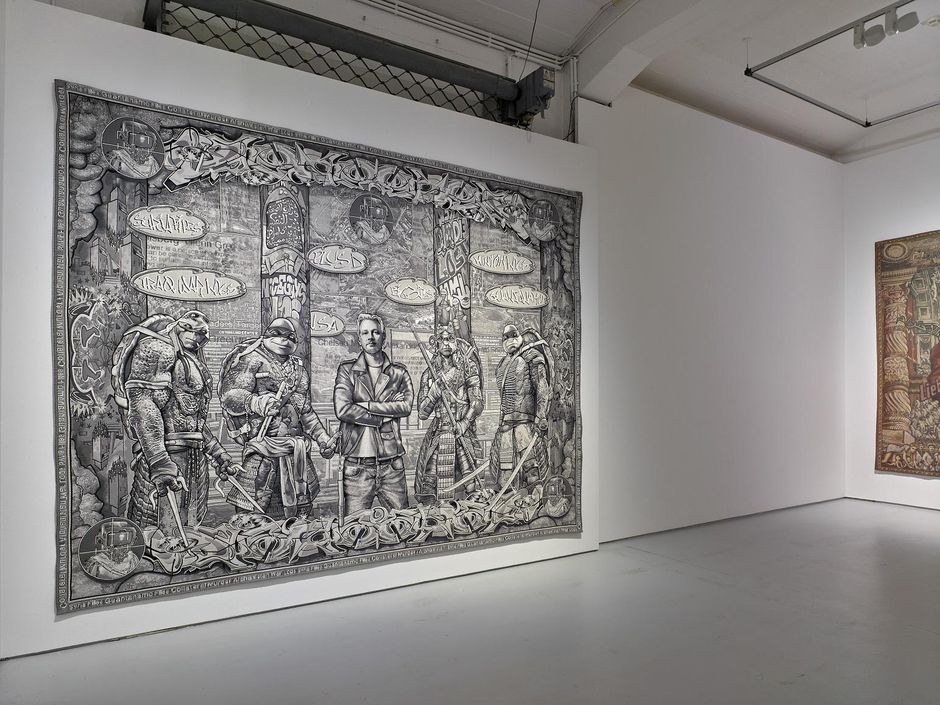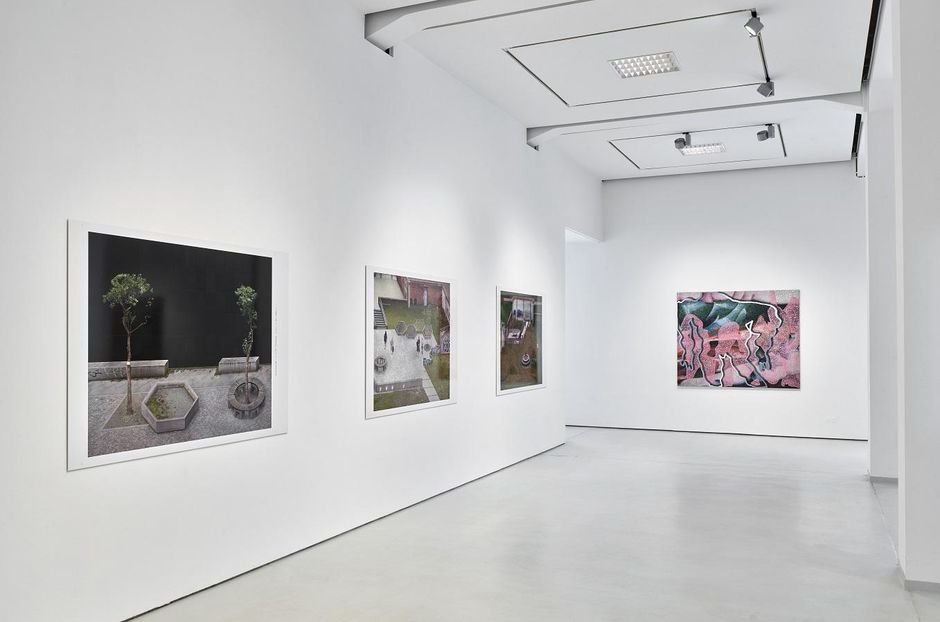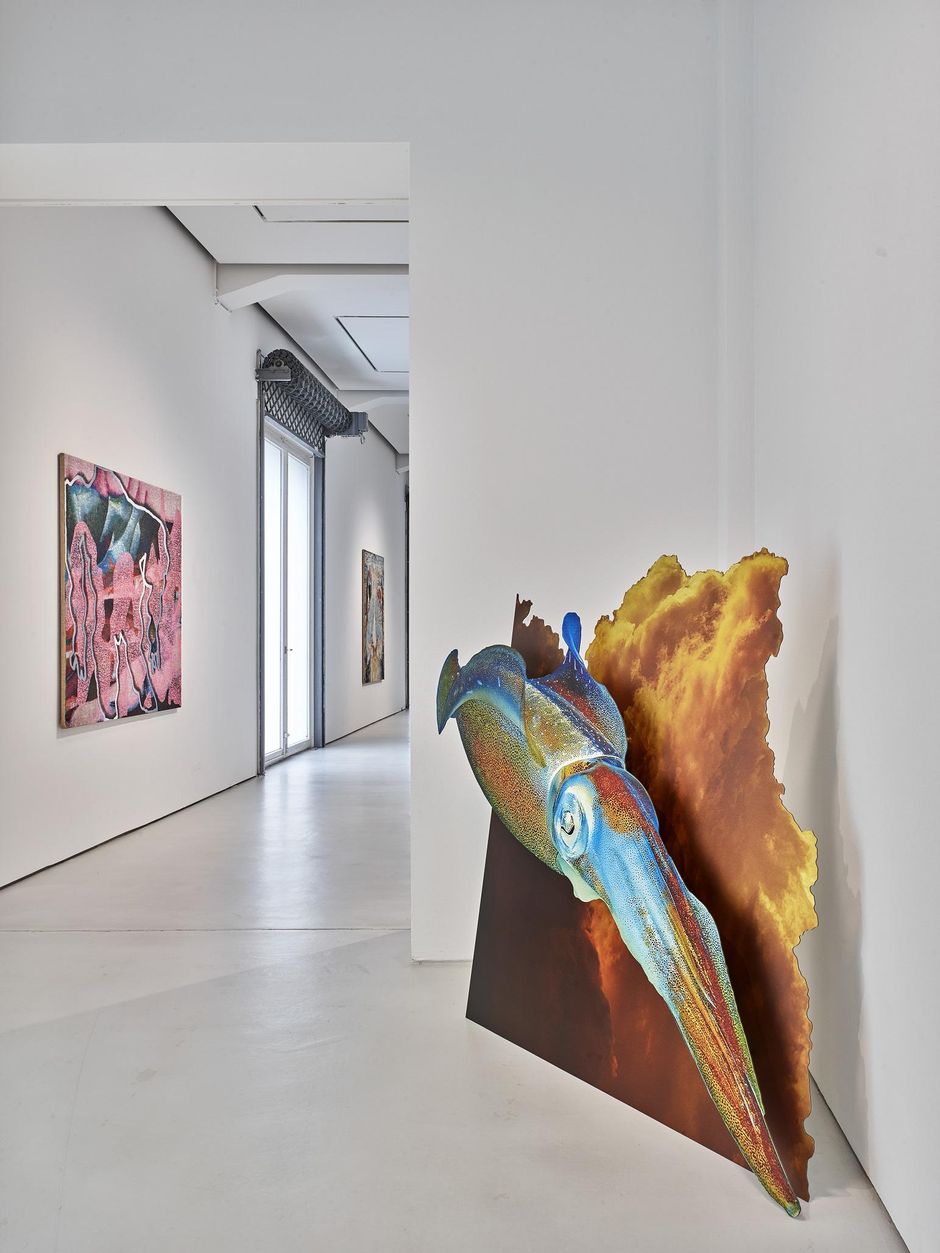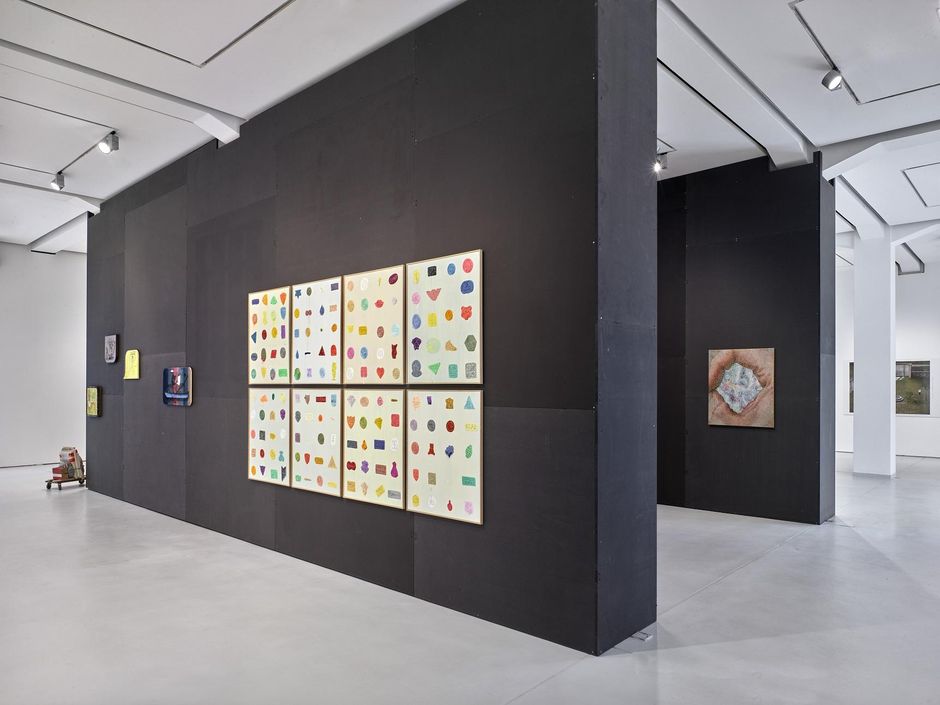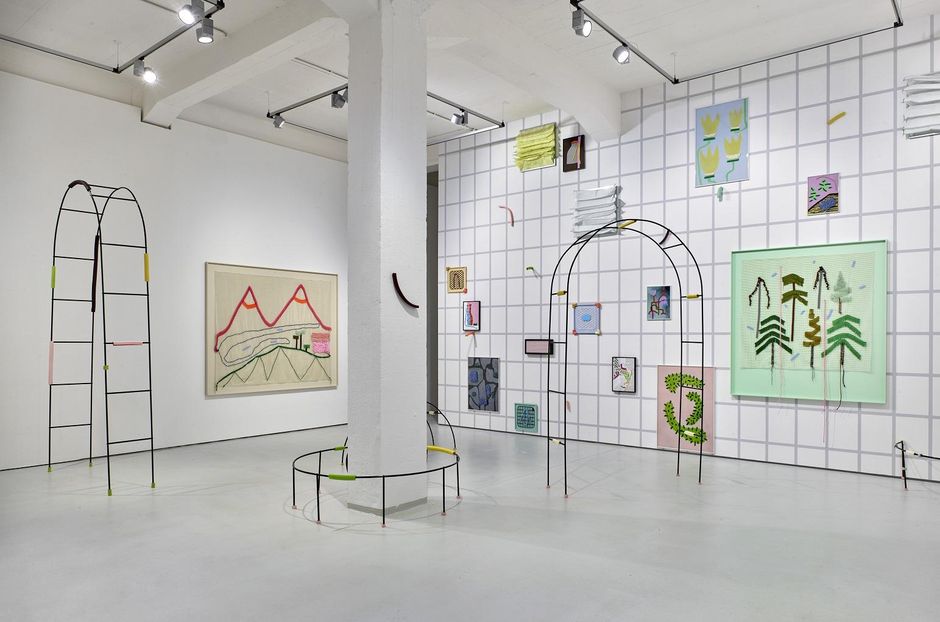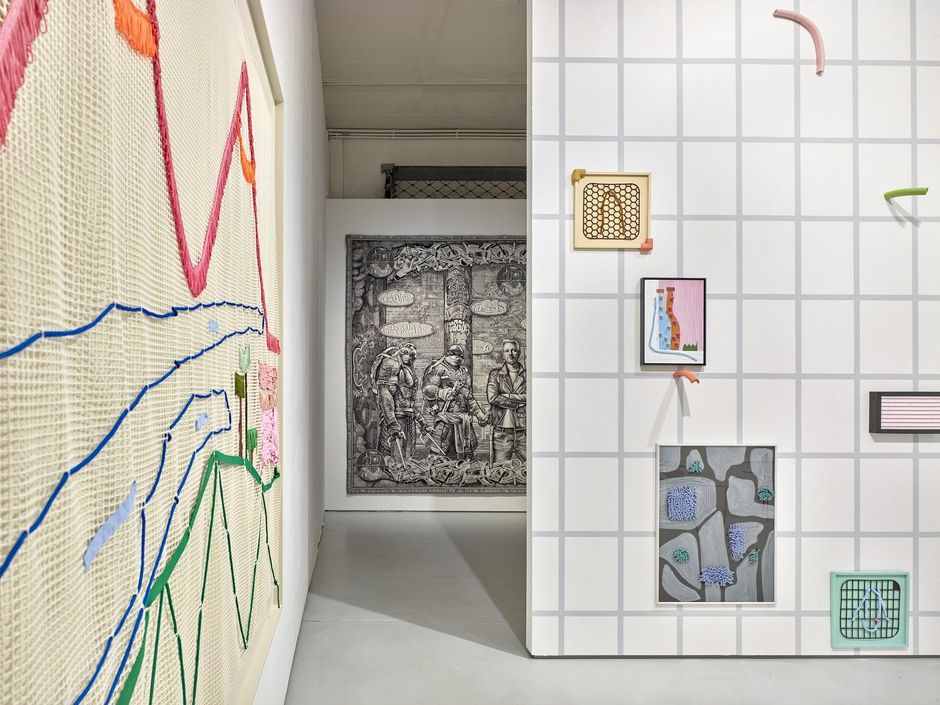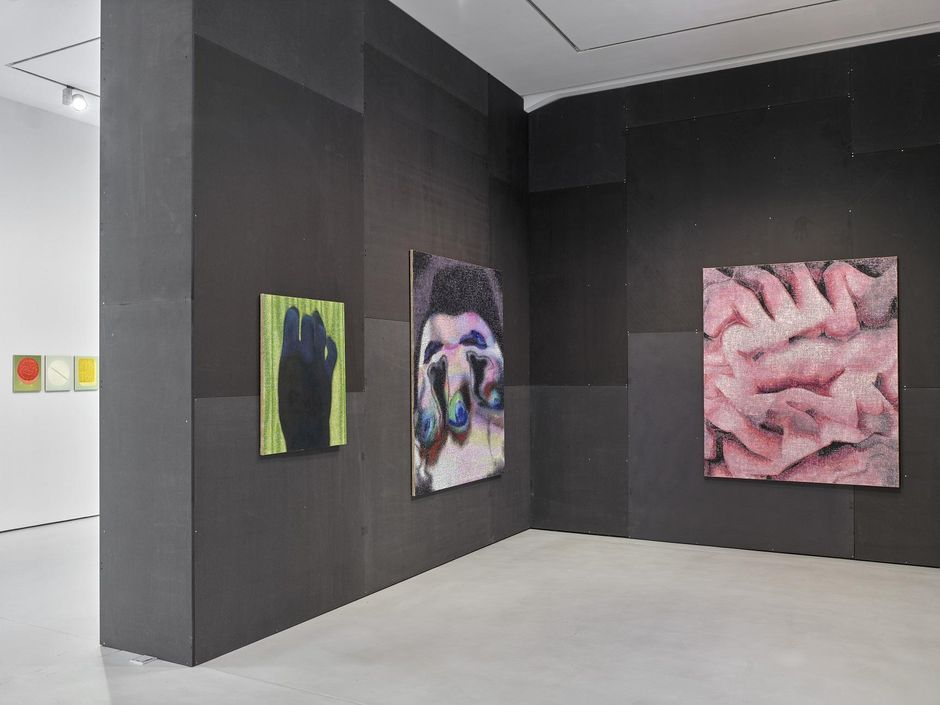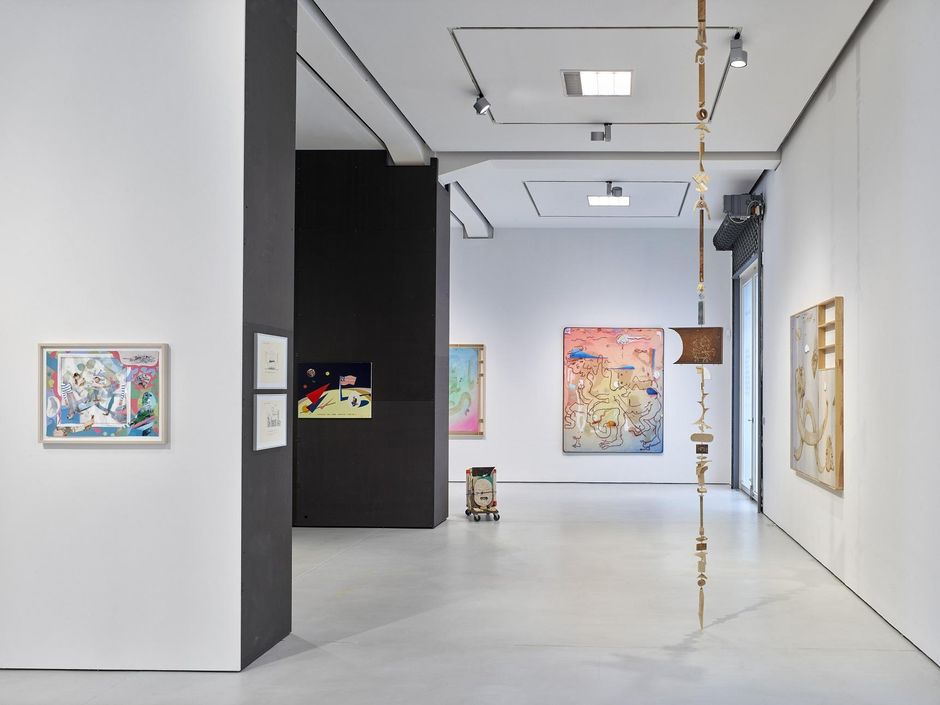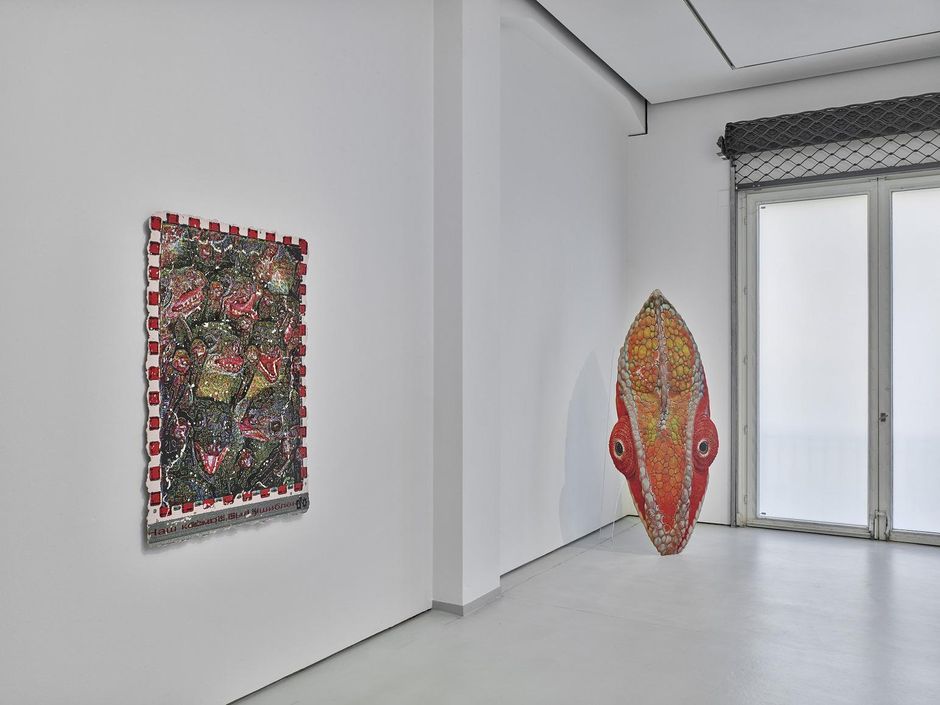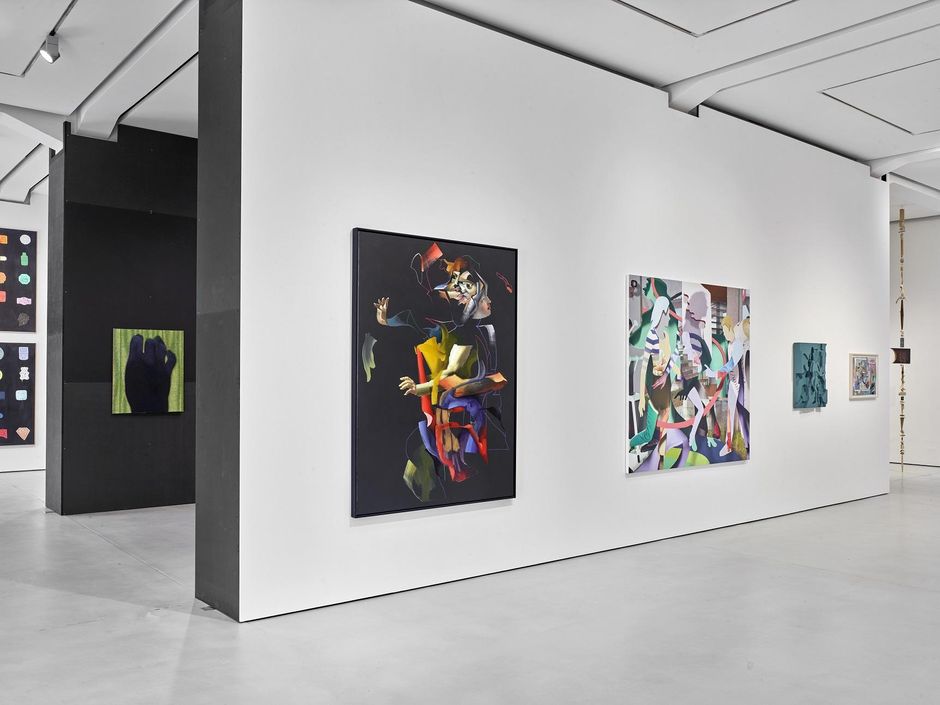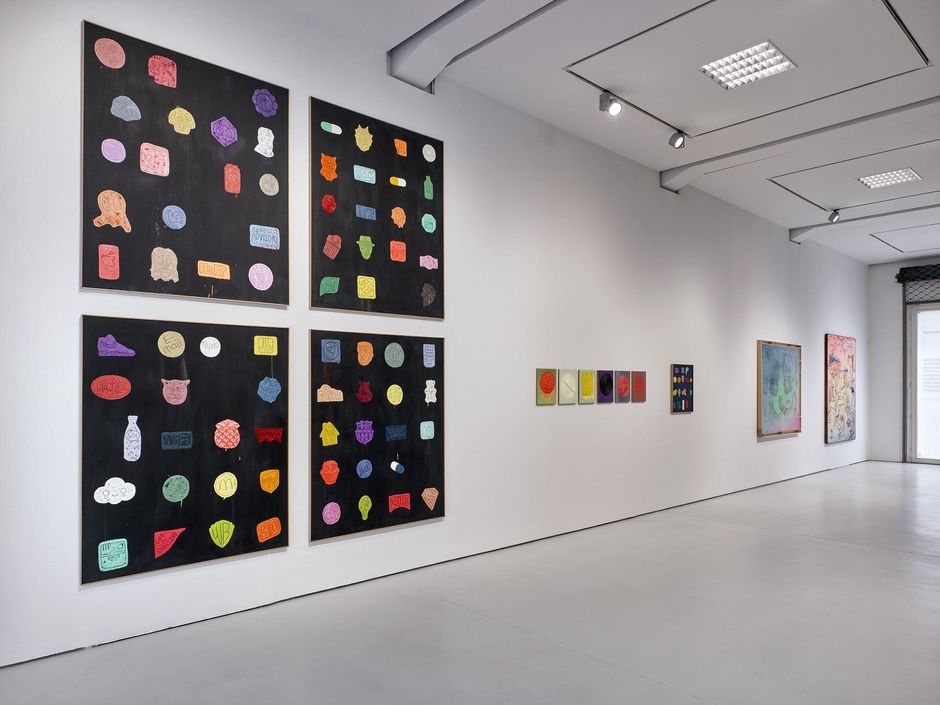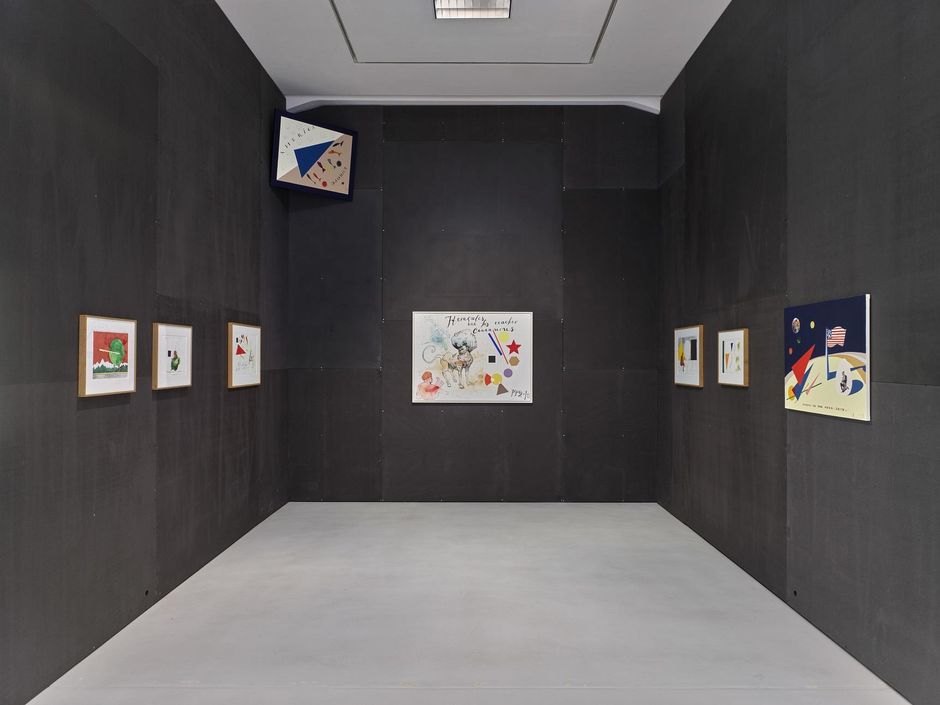
Bodies, Grids and Ecstasy
Margret Eicher, Beate Gütschow, Verena Issel, Inna Levinson, Roy Mordechay, Katja Novitskova, Pavel Pepperstein, Pieter Schoolwerth, Lena Schramm
Exhibition: November 1, 2023 – April 27, 2024
Curator: Ludwig Seyfarth
What becomes of physical reality in a world that is increasingly pervaded by digital processes? Exploring this question, the exhibition confronts us with surprising encounters – and contradictions – between surface and space, abstraction and matter, reality and fiction. We come across images, objects and sculptures in which things come together or are pieced together that as such are not compatible – in other words, collages with invisible seams.
Is everything that fails to fit into a calculable grid at some point no more than remnant analogue matter, discarded like refuse? Or does it become something located beyond our horizon, similar to how our three-dimensional world would appear to the inhabitants of a two-dimensional flatland?
The exhibition shows various artistic paths that lead away from the gridded flatland of a computer screen, a sheet of paper or a wall, back into a world of haptic, corporeal experience and narration. These might run in straight lines that take an unusual course or be convoluted, humorous and enigmatic. Included here may also be a subtle or direct critique of digital capitalism.
Exhibition leaflet
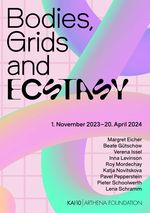
Background information on the exhibition and all the artists can be found here
Images
Accompanying program
, 7 pm
Bodies, Grids and Ecstasy: Opening
Welcome: Monika Schnetkamp, Chairwoman Arthena Foundation
Introduction: Ludwig Seyfarth, Curator of the exhibition
, 7 pm
Panel discussion | Gridded gardens and virtual ships of fools
Verena Issel and Roy Mordechay in conversation with Ludwig Seyfarth
Verena Issel stages a maze – or is it a cage? – in a gridded room in which everything natural is made and arranged from plastic and other synthetic materials. In Roy Mordechay's work, ships of fools, Jewish hats and totem poles meet as if in an aquarium – or is it the background of a screen? The work of both artists combines motifs from art history and different cultures with a reflection of today's political realities and our digital environment.
, 7 pm
Panel discussion | Fictional Ecstasies
Margret Eicher and Lena Schramm in conversation with Dr. Sebastian Baden, director Schirn Kunsthalle Frankfurt
Margret Eicher's textile collages and Lena Schramm's painterly depictions of ecstasy pills illustrate in different ways how visual found footage can be placed in new contexts and thus illuminated differently. Margret Eicher rewrites the canonical narratives of the cultural history of power, says Sebastian Baden, who has also studied Margret Eicher's work in his intensive research on representations of war and terrorism in art. Lena Schramm, on the other hand, uncovers a hidden history of the last 30 years that is concealed behind the diverse appearances of a party drug.
, 7 pm
Panel discussion | Digital art criticism
Will rankings and AI replace experts’ judgment?
Talk with Marek Claassen, founder of artfacts.net, and Carsten Probst, art critic and Vice President of AICA Germany, and Ludwig Seyfarth.
Artfacts.net, founded in 2001 by Stine Albertsen and Marek Claassen, is an online platform that introduces itself on its website as follows: "Artfacts harnesses the power of data and technology to organise and understand the art market. Our database helps people navigate the ever-changing art world landscape." When art market developments are made recordable, presentable and understandable by algorithms, this does not imply any judgement on the content or quality of artworks. But can the achievements of institutions and curators also be meaningfully formalised and quantified using digital tools? Marek Claassen explains how data from the art world is processed at artfacts.net. In conversation with Carsten Probst, it will be discussed whether art criticism can benefit from this and whether there is a risk that judgements about art will be made by artificial intelligence in the future.
, 7 pm
Panel discussion | Can images change nature?
Katja Novitskova in conversation with Thomas Thiel, director Museum für Gegenwartskunst Siegen, and Ludwig Seyfarth (in English)
How do digital imaging software and AI influence our perception? How do machines gaze at us? The Estonian artist Katja Novitskova, who lives in Amsterdam, approaches these topics not least through her observations of the animal world. Or we see protein structures or viruses that are identified or even invented using digital pattern recognition. In doing so, Novitskova is highlighting the tremendous power they exert on us today, reaching well beyond their visual impact: indeed, their manipulation can go as far as to alter biological structures. Then images no longer depict reality; far more, they are prototypes for possible new realities, of which Novitskova’s art offers us a glimpse.
, 3 pm
Panel discussion | The residual substance of the physical world
Inna Levinson in conversation with Annekathrin Kohout, art and media scientist, Leipzig
Inna Levinson lets the colouring matter on the coarse-meshed canvas appear as if it were the remaining matter in physical space in a universe consisting of data structures. The way in which digital media and technologies increasingly determine and, as it were, perforate our everyday lives can therefore also be a theme of painting.
In a conversation with Annekathrin Kohout, Inna Levinson will explain her approach in more detail. It will also address the question of how we can respond artistically to images that are aimed less at our human eyes than at the algorithms that analyse them.
, 7 pm – , 1 am
Düsseldorf’s Night of Museums 2024
Waterscreen Cinema by the artist duo Time Gates from Vienna
8:30 pm and 10:30 pm
The Vienna-based artist duo Time Gates (Dorothee Frank & Ben G. Fodor) develops sensational media productions that are performed in public outdoor spaces or in exhibition situations. For their work Waterscreen Cinema they use video projection to transform a water surface into a living screen. Filmed water landscapes and scenes mix with the movement of the real water surface. In some parts of the video, the duo themselves perform. There are also live performance and sound elements that intertwine with the video sequences. This unique performance is a filmic ode to water as an essential resource for life that is under threat worldwide. It also reflects on the role of water in the human history of power, violence and war.
Short tours through the exhibition Bodies, Grids and Ecstasy
7:30 pm and 9:30 pm
Individual works are specifically presented in short guided tours through the exhibition. In particular, it will be explained how patterns of perception and spatial concepts from the digital world also shape the visual worlds of analogue media.
Tickets for all participating venues are available in advance online at https://museen-nacht-duesseldorf.ticket.io, in KAI 10 probably from the end of March and at the box office for €17.00.
Public guided tours
Public guided tours | 3 pm: 5.11., 19.11., 3.12., 17.12.2023, 7.1., 21.1., 4.2., 18.2., 3.3., 17.3., 7.4., 21.4.2024

